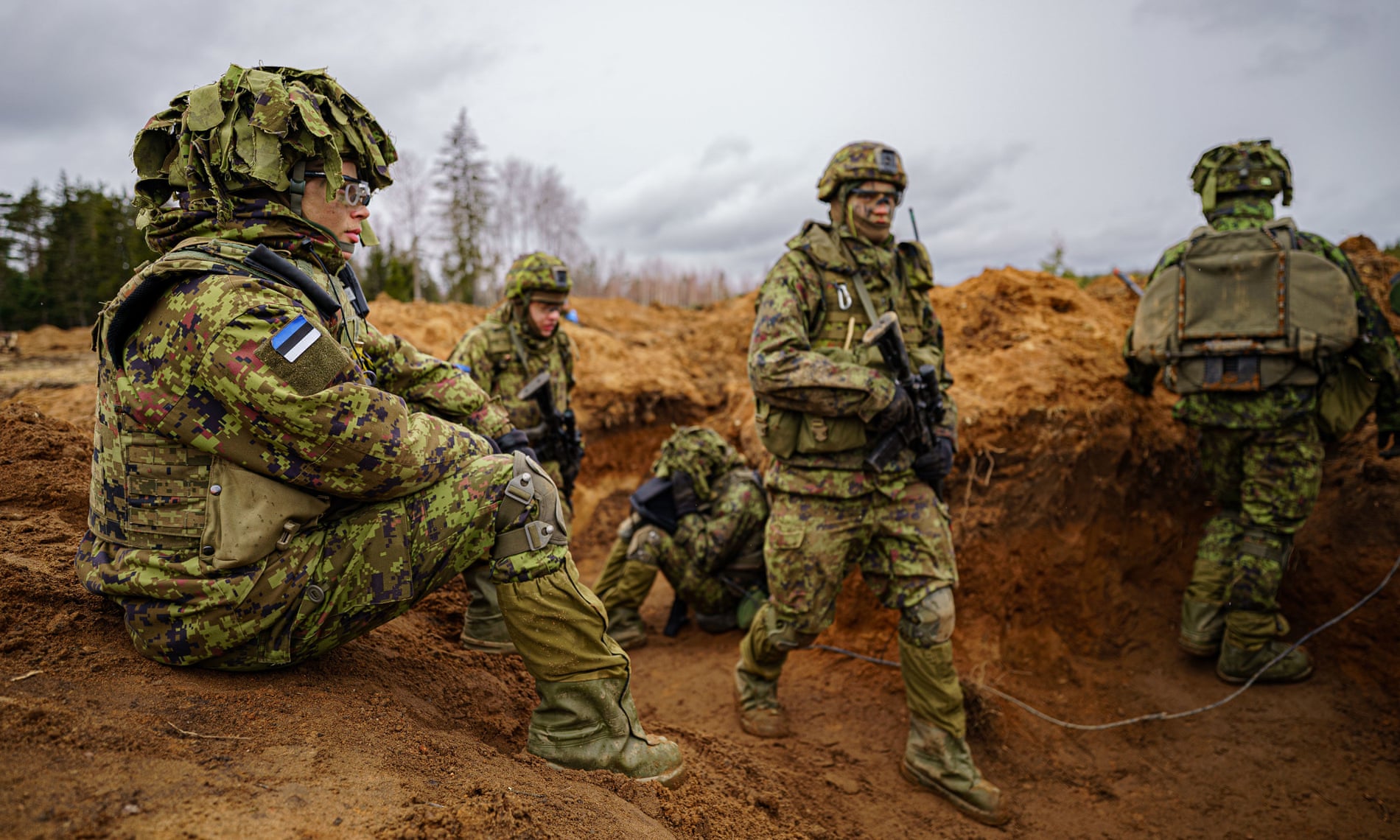If Europe wants to defend itself, it must build armies that people want to join
The Guardian
The prospect of an isolationist US under Trump should push EU leaders to design a defence policy that is democratic and accountable.
(Text continues underneath the photo.)

Estonian soldiers during Nato exercise Bold Dragon in Tapa military training area, Estonia, April 2022. Photograph: Ben Birchall/PA.
As Donald Trump gets closer to (officially) wrapping up the race for the Republican nomination, and intensifies his attacks on Nato, European politicians are finally starting to openly share their concern about the future of European security in general – and Nato in particular. As Ivo Daalder, a former US ambassador to Nato, has eloquently explained, a second Trump presidency might not necessarily mean the end of the alliance, but it would fundamentally change it, and mean that the Europeans would primarily have to defend themselves. (...)
Sure, the defence budgets of (some) EU member states have gone up and military concerns are at the centre of political discussions, but some of the main questions surrounding European security remain unanswered. Should a European military alliance be created and, if so, should it be part of Nato? If yes, what should its role be and what new responsibilities towards Europe would the US have? If no, what would the relationship be with the UK, one of the few European countries with a significant standing army and with nuclear capabilities? (...)
Politicians and military experts are undoubtedly discussing many of these key issues now, but little of this is being done in public. And while national security concerns justify secrecy about some details, it is vital for both European democracy and defence that these discussions become part of the broader political debate.
There are at least two reasons for a broader public involvement in the shaping of a new “European army”: popular buy-in and democratic control. (...)
A European defence force that is less dependent on the US will require significant increases in military spending at the national, and possible even supranational, level. (...) Obviously, this is money that cannot be spent on other issues. Hence, the priority of military spending must be explained and defended to the population as part of the political debate.
But even more importantly, to make Europe militarily less dependent on the US, it will need to significantly increase troop numbers. (...) To compensate for the US’s absence, or at least limited availability, the EU would have to double, if not triple, its troop numbers. (...)
To achieve this not only requires a lot of money but also a serious upgrade in the attractiveness of a military career. (...)
Some military insiders have already called for the reintroduction of military service, which many EU countries either abolished or suspended after the cold war. There is much to say for that, both from a pragmatic and a democratic perspective. (...)
Finally, Europe must not make the same mistake as the US and build a military-industrial complex that creates a stranglehold on the economy and politics.(...) This can only be achieved through democratic control, which itself is only possible with a high level of accountability and transparency. Unfortunately, most countries have moved exactly the other way since the terrorist attacks of 9/11, increasing authoritarianism, secrecy and surveillance. (...)
[T]he left should not leave this crucial issue to the right. Both the illiberal and the neoliberal right will favour a largely unchecked military-industrial complex. It is up to the (centre-)left to develop and defend a plan for a European army that finds a democratic position between pacifism and militarism.
Tags: #defense #military #armed_forces #europe #nato #us #trump #democracy #democratic_control #public_support #military-industrial_complex
There are no comments yet.